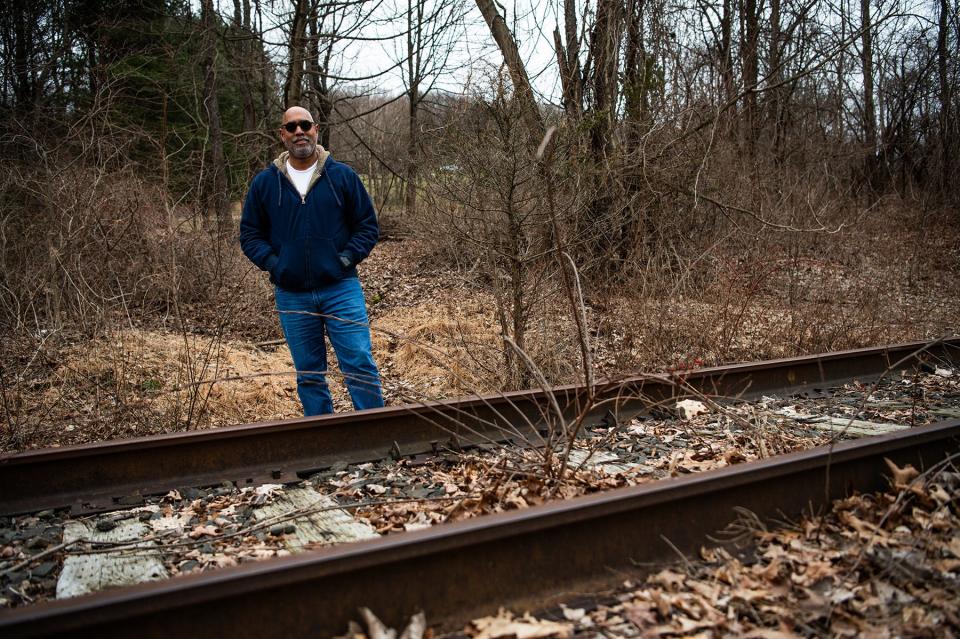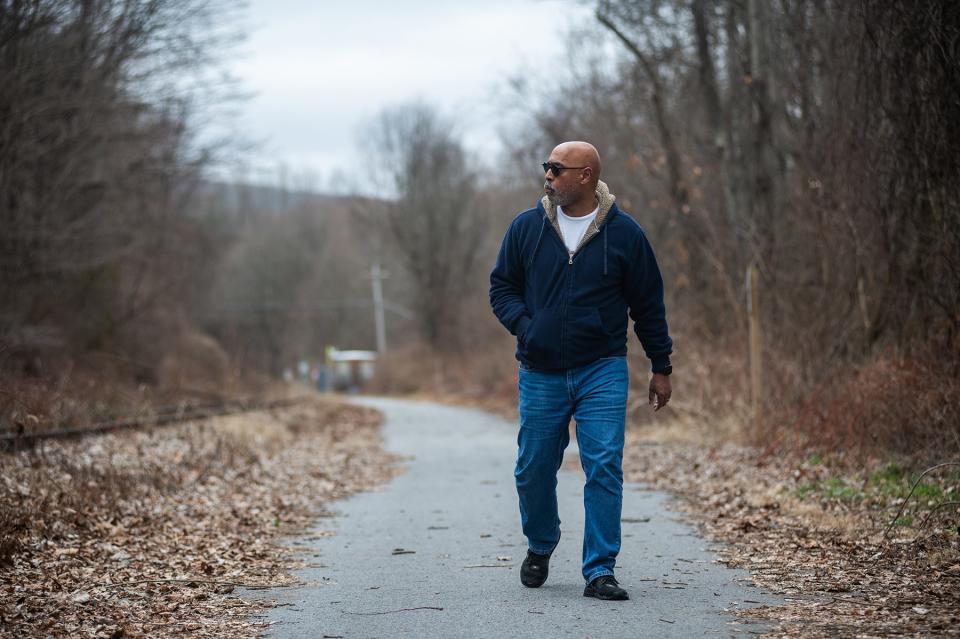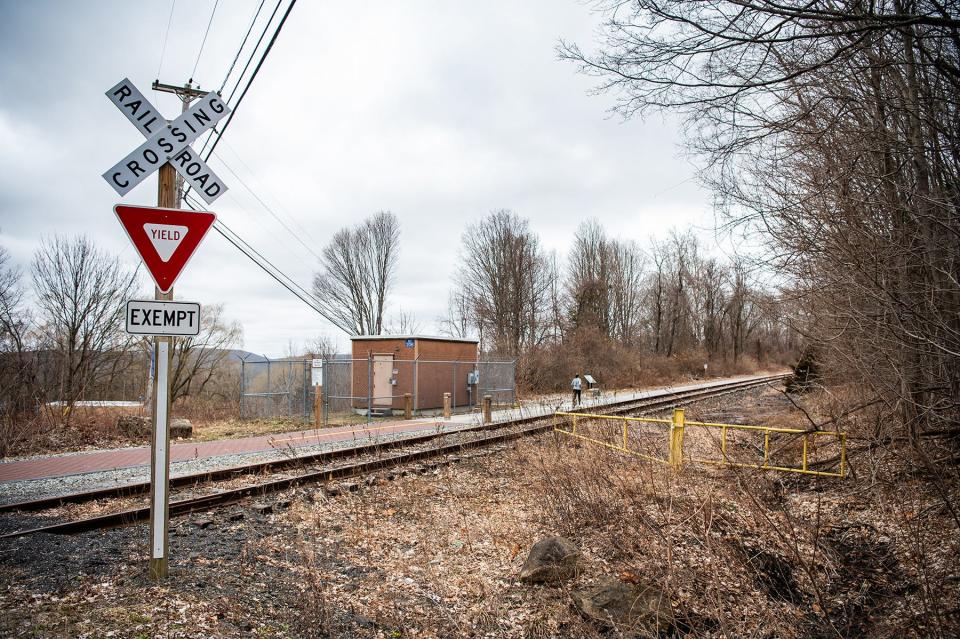If you live by an old railroad track in NY, the federal government may owe you some money
Hundreds of landowners along a 41-mile stretch of abandoned Metro-North Railroad track in the Hudson Valley could be in for a major payday.
Homeowners in Dutchess and Putnam counties sued the federal government last month, claiming they became the rightful owners of property along the Beacon Line right-of-way after Metro-North declared in December it no longer had any use for it.
Instead, the federal government last month approved Metro-North’s bid to bypass state law so the property could be turned into a public hiking and biking trail, according to attorneys representing landowners.
Similar challenges playing out in New York and across the country have fetched multi-million-dollar payouts shared by property owners, thanks to an arcane area of the law known as Rails-to-Trails litigation.
The challenges came in response to the 1960s-era Trails Act, the federal government’s effort to find new, productive uses for railroad rights-of-way.

The property along the Beacon Line was taken to build the railroad tracks decades ago. But, the landowners’ attorneys argue, the ownership rights are supposed to revert to the property owners once the right-of-way is abandoned. And since they were not, the federal government must compensate the landowners.
Steven Wald’s St. Louis firm, Stewart Wald & Smith, filed two lawsuits in the U.S. Court of Federal Claims last month on behalf of dozens of landowners.
“We’re not saying that (the trail) can’t be there,” Wald said. “We’re not saying that they’re bad or anything like that. We’re just saying that if you’re going to take the land of our clients to build essentially a linear public park, then the public at large should pay for it, not just the landowners.”
The firm has secured seven and eight-figure payouts for landowners in New York and across the country over the past decade.
Metro-North's future Can Bronx commuters solve Metro-North's ridership woes? Railroad's leader is betting on it
Beacon Line Trail: What are the details?
The trail envisioned for the Beacon Line would start at the Beacon waterfront and head east through Fishkill, Hopewell Junction and into Putnam County where it would link up with the Dutchess Rail Trail and the 750-mile Empire State Trail, according to attorneys.
In 2023, Dutchess County hired a consultant to study the feasibility of adding a trail along a 13-mile stretch of the Beacon Line, from Beacon to Hopewell Junction. The findings, including cost estimates and design options, will be presented to the public in the coming months.
The county has not acquired title to the property.
Some landowners did not learn they were entitled to money until they were contacted by a law firm. And several don’t mind the trail. In fact, they’re all for it.
Among them is Ian Mandrew Prendergast, who lives along Brothers Road in Pouqhquag, Dutchess County. He and his wife regularly walk along a portion of the right-of-way down the hill from his house where a trail already exists.

“We didn’t even know that our property was down there at the end or that we had anything to do with it,” Mandrew Prendergast said. “I can walk up and down with my wife and the dogs. It’s a beautiful thing.”
Prendergast is represented by Lewis Rice, another St. Louis law firm that specializes in Rails-to-Trails litigation. The firm filed a lawsuit in the federal claims court last month.
In February 2023, Lewis Rice scored a $12 million settlement for 21 landowners who claimed the Atlanta BeltLine should have compensated them before turning over land for a 22-mile hiking and biking trail that crossed their property.
Gone: Metro-North's core riders have vanished, railroad wonders if they'll ever return
A spokesman for the Surface Transportation Board (STB), the federal agency that approved the Beacon Line conversion last month, declined to comment on pending litigation.
Metro-North said it hopes the property can be put to good use.
“Metro-North Railroad is no longer required to maintain the tracks and railroad infrastructure to support rail traffic on the Beacon Line and has no plans to operate train service on the Beacon Line in the future,” said David Steckel, a spokesman for Metro-North’s parent agency, the Metropolitan Transportation Authority. “This decision provides a wonderful opportunity for a trail group, municipality or other appropriate public entity to construct and operate a trail on this line.”
Toll: NYC $15 toll: Can Hudson Valley commuters speak out before congestion fee starts?
How did Metro-North come to own the Beacon Line right-of-way?
The railroad bought the Beacon Line right-of-way in 1995 for nearly $4.5 million and once considered using it as an east-west link for its Hudson and Harlem lines.
Technically, the Beacon Line was not abandoned but railbanked, meaning the track will remain in place if the railroad chooses to use it at some later date. But Metro-North said it has no such plans and the right-of-way will remain under the jurisdiction of the STB.

Lewis Rice attorney Lindsay Brinton said property owners could receive a few thousand dollars apiece or hundreds of thousands of dollars. Much depends on appraisals that will take place in the coming months.
“It really just depends on how the taking (of land) affects each individual property,” Brinton said.
For instance, Wald says a trail could intrude on a landowner’s privacy or invite trespassing.
“Some of our clients love trails, some of them hate it,” Wald says. “I will say that if you own land that is next to a railroad corridor that’s turned into a trail, you’re very likely to like it less than someone who’s across the street from you.”
Have other NY residents sued over railroads turned trails?
This appears to be the first time Metro-North property has faced such a challenge.
But several other cases involving New York railroads have led to large settlements.
Lewis Rice recently resolved a claim by property owners who live beside a 30-mile railroad corridor in Orchard Park for an undisclosed amount of money.
And in 2017, Wald’s firm secured a $14.2 million settlement for 272 landowners who lived along the Albany County Hedelberg-Hudson River Trail.
The nine-mile trail linking the Port of Albany with Voorheesville was along a right-of-way operated by the Delaware & Hudson Railroad Co.
This article originally appeared on Rockland/Westchester Journal News: Neighbors of abandoned NY railroad track could be in for a payday

